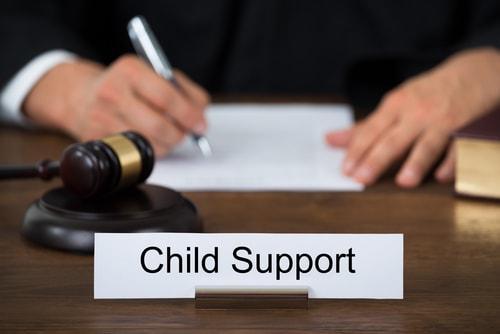2017 Child Support Laws: What Is Shared Parenting Time under the New Law?
 If you are in the process of getting divorced in Oakbrook Terrace, you already may know about changes to Illinois family laws regarding child support. In brief, under Illinois law (750 ILCS 5/), child support has been determined based on a percentage-based model (or formula) that looks at the number of children for whom support is awarded, and the payor and payee parents are determined by who has primary physical custody of the child. For each child, a certain percentage of the payor parent’s income is the amount of child support awarded. However, as you may know, there have been a number of changes to family and divorce law in Illinois over the last year or so, and one of those changes concerns child custody. Parents are no longer awarded legal and/or physical custody, but instead, those terms have been replaced with “parental responsibilities” and “parenting time.”
If you are in the process of getting divorced in Oakbrook Terrace, you already may know about changes to Illinois family laws regarding child support. In brief, under Illinois law (750 ILCS 5/), child support has been determined based on a percentage-based model (or formula) that looks at the number of children for whom support is awarded, and the payor and payee parents are determined by who has primary physical custody of the child. For each child, a certain percentage of the payor parent’s income is the amount of child support awarded. However, as you may know, there have been a number of changes to family and divorce law in Illinois over the last year or so, and one of those changes concerns child custody. Parents are no longer awarded legal and/or physical custody, but instead, those terms have been replaced with “parental responsibilities” and “parenting time.”
Why is this important for child support? Another major change to the law concerns how child support is determined, and the new law will take effect in July 2017. When July 2017 rolls around, how will “parenting time” have an impact on the amount of child support paid?
Understanding the “Income Shares” Model of Child Support
Until July 1, 2017, child support will continue to be awarded based on the formula we mentioned above. However, after that point, the “income shares” model of child support (Pub. Act 99-764) will become the basis from which the court will make child support determinations. What is “income shares” and what does it have to do with shared parenting time?
To better understand why shared parenting time could have an impact on a child support award under the new law, it is important first to understand how child support payments will be calculated once the revised law takes effect. Under the income shares model, the court will determine the gross income of both parents. To do this, the court will look to all sources of the parents’ income, potentially including spousal support, and the court will then determine the parents’ net income. The goal is to provide the same support for the child — from both parents — that the child would have had if the parents were not living apart. The court will look at the amount from each parent’s income that would have been spent on the child, and make a spousal support determination accordingly.
Shared Parenting Time and the “Income Shares” Model
Where does shared parenting time come into the equation? In brief, adjustments can be made to the child support award based on shared parenting time. In situations where there is equally shared parenting time (in other words, the child spends approximately 50 percent of her time with one parent and 50 percent of her time with the other), then the income shares model for child support will reflect this. And if one parent has a majority of the parenting time — even if the parents share parental responsibilities — then the child support award will reflect that arrangement.
When we say a child support award, what does this mean if there is 50/50 shared parenting time? Most often, the court will determine what Parent A would contribute for child support, and then determine what Parent B would contribute for child support. Then, the court most likely would develop two different child support awards, showing what each parent would owe the other based on their individual contributions. In the event that there is a difference between what Parent A would owe Parent B or vice versa.
To better understand, let us give you a hypothetical. In traditional income shares models, if Parent A’s monthly contribution to the child were $1,000, and Parent B’s contribution to the child were $1,500, and the parents have 50/50 shared parenting time, then the court may award the split difference — $250 — to Parent A so that each parent is contributing the same amount based on the time spent raising the child. However, Illinois has yet to come up with the specific language for income shares models, so we will need to wait to see precisely how the courts will handle shared parenting time and child support awards.
Contact an Oakbrook Terrace Family Law Attorney
At Farooqi & Husain Law Office, we are committed to providing legal representation to members of the Muslim community in DuPage County. If you have questions about child support, an experienced Oakbrook Terrace family law attorney can help. Contact Farooqi & Husain Law Office today for more information.
Source:
http://www.ilga.gov/legislation/ilcs/documents/075000050K505.htm


 630-909-9114
630-909-9114




